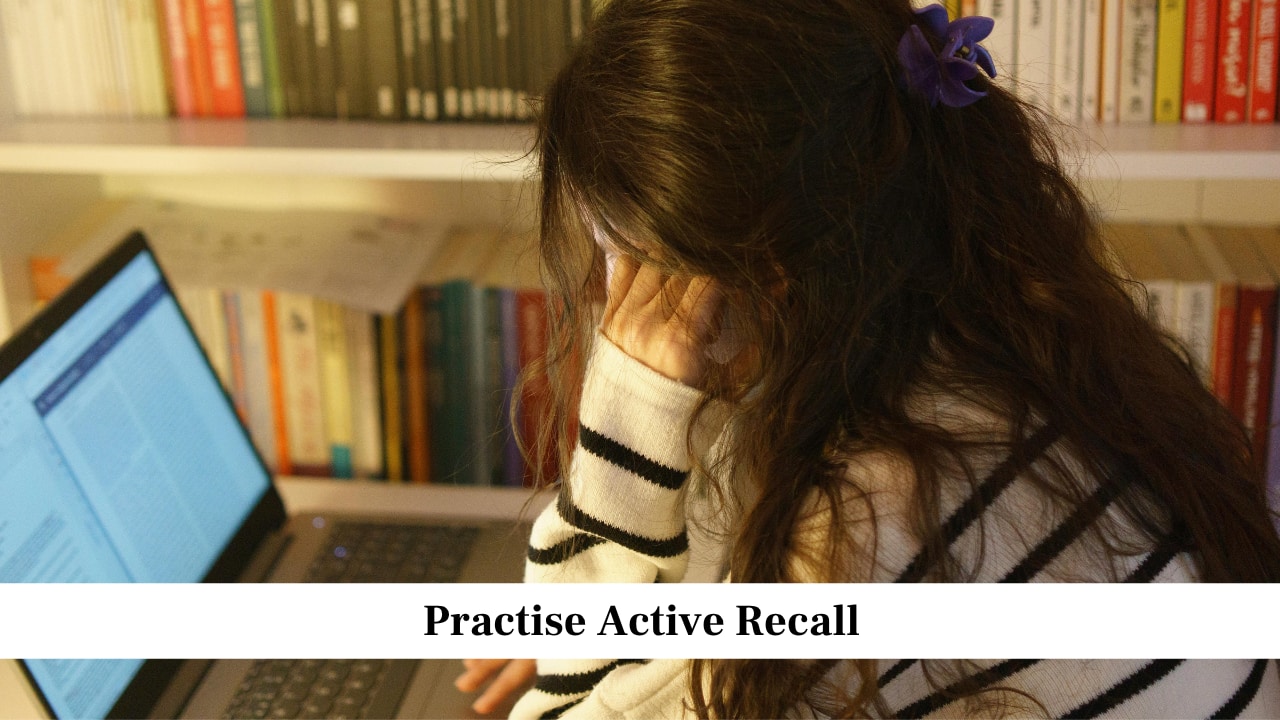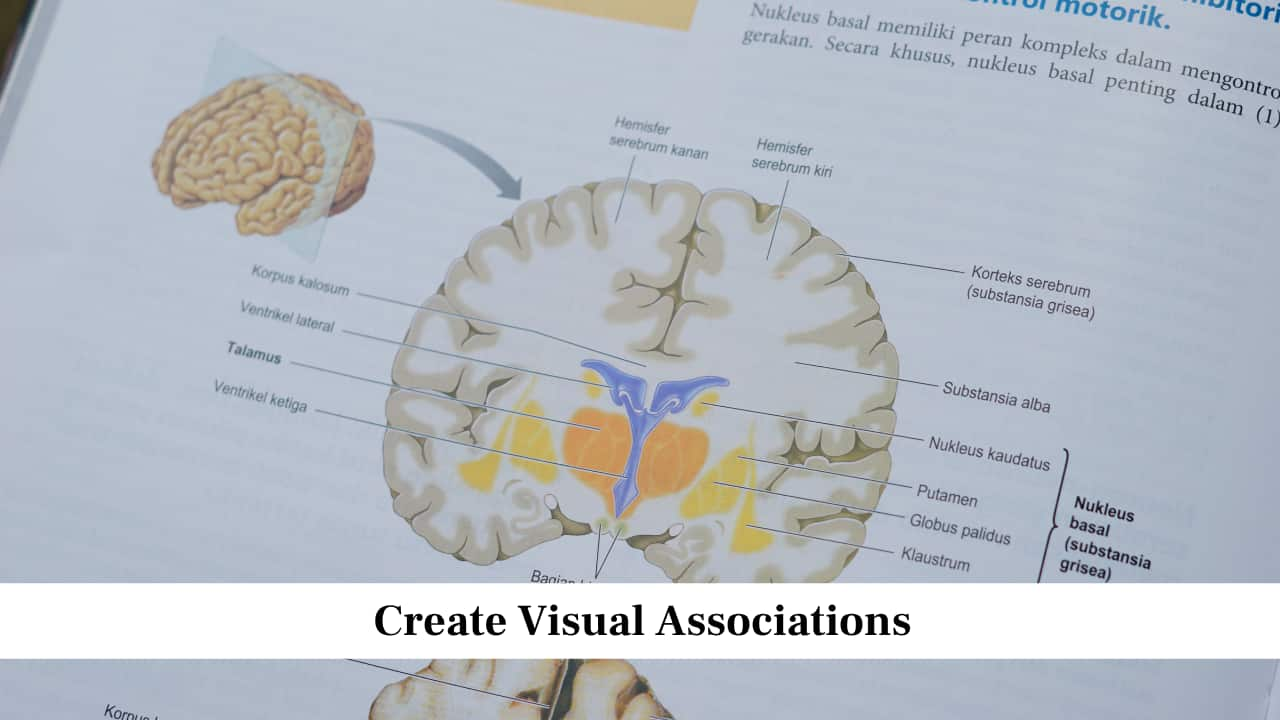9 Ways to Train Your Brain to Remember More in Less Time
Discover nine simple and practical ways to train your brain to remember more in less time, from active recall and spaced repetition to healthy habits and mindful learning techniques.
1/9

Practise Active Recall
Instead of rereading notes, try recalling information without looking. This method forces your brain to retrieve data, strengthening memory pathways. You can use flashcards or practise by writing down what you remember after studying. Active recall helps identify weak areas and makes learning more effective. Over time, your brain becomes quicker at remembering information because it has been trained to find and connect stored knowledge easily.
Instead of rereading notes, try recalling information without looking. This method forces your brain to retrieve data, strengthening memory pathways. You can use flashcards or practise by writing down what you remember after studying. Active recall helps identify weak areas and makes learning more effective. Over time, your brain becomes quicker at remembering information because it has been trained to find and connect stored knowledge easily.
2/9

Use Spaced Repetition
Spacing out your study sessions helps your brain retain information for a longer time. Instead of cramming, review material after increasing gaps, one day, three days, a week, and so on. This method reinforces memory before it starts fading. The repetition signals to your brain that the information is important, making it more likely to stay stored in long-term memory.
Spacing out your study sessions helps your brain retain information for a longer time. Instead of cramming, review material after increasing gaps, one day, three days, a week, and so on. This method reinforces memory before it starts fading. The repetition signals to your brain that the information is important, making it more likely to stay stored in long-term memory.
3/9

Break Information into Chunks
The brain finds it easier to remember small, structured pieces of information. Try breaking long topics into shorter sections, points, or patterns. For example, instead of memorising an entire paragraph, focus on one idea at a time. Grouping information into meaningful categories helps your brain organise and recall it better, especially during exams or presentations.
The brain finds it easier to remember small, structured pieces of information. Try breaking long topics into shorter sections, points, or patterns. For example, instead of memorising an entire paragraph, focus on one idea at a time. Grouping information into meaningful categories helps your brain organise and recall it better, especially during exams or presentations.
4/9

Create Visual Associations
Your brain remembers images better than plain words. Try turning information into mind maps, diagrams, or visual cues. Linking facts to pictures, colours, or even funny symbols can make recall faster. For instance, if you need to remember a list, connect each item with a visual image in your head. This method engages both the visual and logical sides of your brain, improving memory strength.
Your brain remembers images better than plain words. Try turning information into mind maps, diagrams, or visual cues. Linking facts to pictures, colours, or even funny symbols can make recall faster. For instance, if you need to remember a list, connect each item with a visual image in your head. This method engages both the visual and logical sides of your brain, improving memory strength.
5/9

Teach What You Learn
Explaining a concept to someone else is one of the best ways to remember it. When you teach, you are forced to simplify and recall details clearly, which strengthens understanding. Even if you do not have an audience, try teaching aloud to yourself. This process helps identify areas you have not fully understood and reinforces memory through active engagement.
Explaining a concept to someone else is one of the best ways to remember it. When you teach, you are forced to simplify and recall details clearly, which strengthens understanding. Even if you do not have an audience, try teaching aloud to yourself. This process helps identify areas you have not fully understood and reinforces memory through active engagement.
6/9

Get Proper Sleep
Sleep plays a major role in memory. When you sleep, your brain organises and stores information learned during the day. Lack of rest makes it difficult to focus, recall, and retain knowledge. Try to maintain a consistent sleep schedule and avoid studying late at night. Getting seven to eight hours of quality sleep each night helps your brain process and remember information effectively.
Sleep plays a major role in memory. When you sleep, your brain organises and stores information learned during the day. Lack of rest makes it difficult to focus, recall, and retain knowledge. Try to maintain a consistent sleep schedule and avoid studying late at night. Getting seven to eight hours of quality sleep each night helps your brain process and remember information effectively.
7/9

Engage in Physical Activity
Exercise increases blood flow to the brain, which improves concentration and memory. Even a short walk or light workout can boost alertness and help in retaining information. Physical activity also reduces stress hormones, allowing your mind to stay calm and focused. Making exercise a regular habit keeps your brain healthy and better prepared to learn new things quickly.
Exercise increases blood flow to the brain, which improves concentration and memory. Even a short walk or light workout can boost alertness and help in retaining information. Physical activity also reduces stress hormones, allowing your mind to stay calm and focused. Making exercise a regular habit keeps your brain healthy and better prepared to learn new things quickly.
8/9

Use Mnemonics and Memory Tricks
Mnemonics are simple techniques that help you remember complex information. You can create rhymes, short phrases, or letter patterns to make learning easier. For example, using the first letters of words in a list to form a memorable phrase. This helps your brain find connections between ideas, making it simpler to recall details in exams, speeches, or everyday tasks.
Mnemonics are simple techniques that help you remember complex information. You can create rhymes, short phrases, or letter patterns to make learning easier. For example, using the first letters of words in a list to form a memorable phrase. This helps your brain find connections between ideas, making it simpler to recall details in exams, speeches, or everyday tasks.
9/9

Eat Brain Boosting Foods
Your diet has a direct impact on memory. Foods rich in omega-3 fatty acids, such as nuts and fish, support brain function. Fruits, vegetables, and whole grains help maintain focus and energy levels. Drinking enough water and avoiding too much sugar or processed food also improves concentration. A healthy diet keeps your brain active and better able to remember information over time.
Your diet has a direct impact on memory. Foods rich in omega-3 fatty acids, such as nuts and fish, support brain function. Fruits, vegetables, and whole grains help maintain focus and energy levels. Drinking enough water and avoiding too much sugar or processed food also improves concentration. A healthy diet keeps your brain active and better able to remember information over time.
Discover the latest Business News, Budget 2025 News, Sensex, and Nifty updates. Obtain Personal Finance insights, tax queries, and expert opinions on Moneycontrol or download the Moneycontrol App to stay updated!






